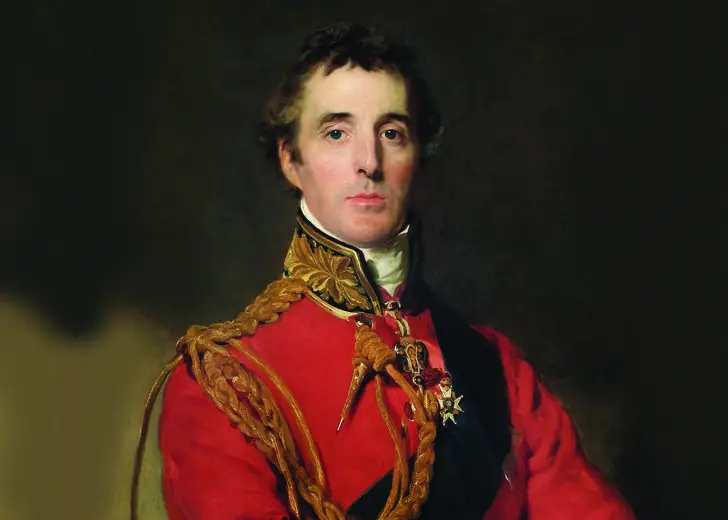
Quick Wiki
- Full Name Arthur Wellesley, 1st Duke of Wellington
- Nickname The Iron Duke, The Beau, The Eagle, Beau Douro, The Beef
- Birth Date May 1, 1769
- Death Date 1852-09-14
- Place Of Death Walmer Castle and Gardens, Walmer, United Kingdom
- Nationality Irish
- Birthplace Dublin, Ireland
- Occupation Soldier, Politician
- Wife Catherine Wellesley, Duchess of Wellington
- Age At Death 83
Arthur Wellesley | Biography
Former Prime Minister of the United KingdomFrom 1808 to 1814, Wellesley led the British, Portuguese, and Spanish troops during the Peninsular War, forcing the French to withdraw from Portugal and Spain. He then defeated Napoleon Bonaparte’s army at Waterloo in Belgium on 18 June 1815.
Arthur Wellesley, 1st Duke of Wellington, was a leading military and political figure of the 19th century. He is best remembered for defeating Napoleon Bonaparte at the Battle of Waterloo in 1815.
Who is Arthur Wellesley?
Arthur Wellesley, 1st Duke of Wallington, was an Anglo-Irish soldier and the former prime minister of the United Kingdom. He was made 1st Duke of Wellington in 1814. He rose to military prominence after winning the Peninsular War (1808-1814) and Napoleon at the Battle of Waterloo (1815).
As the prime minister, he was recognized for opposing the Reform Bill proposed in 1831-1832. He served as a prime minister twice, first in 1828 as a member of the Tory party and the next in 1834. He continued to serve in various governmental positions until his retirement and remained Commander-in-Chief of the British Army until his death. He died in 1852, and his funeral was said to have been witnessed by a million and a half people.

He Is The Son Of The Earl Of Mornington
He was born Arthur Wesley (which he later changed to Wellesley in 1798) on 1 May 1769 in Dublin, Ireland, as the son of Garret Wesley, 1st earl of Mornington, and Anne Wellesley, the eldest daughter of banker Arthur Hill, 1st Viscount Dungannon.
In 1781, when he was 12, his father died, and the same year, he was enrolled at Eton. His mother, Countess of Mornington, considered him an awkward and withdrawn child. Due to his personality, he could not excel in his studies at Eton. As a result, he was taken away from Eton in 1784. He was then forced to relocate to Brussels with his mother.
Wellesley was then enrolled in the French Royal Academy of Equitation in Anglers. Although he was initially undistinguished, it was there he found his calling and began to show his exceptional talents.
He Began His Military Career In 1787
On 7 March 1787, Wellesley was commissioned as a junior officer in the 73rd Regiment of Foot in the British Army. Later in October, he was appointed as aide-de-camp to the Lord Lieutenant of Ireland. He was promoted to lieutenant on the Christmas Day of the same year. He eventually entered politics. From 1790 to 1797, Wellesley was a Member of Parliament for Trim in the Irish House of Commons.
In 1993, Wellesley became a lieutenant colonel of the 33rd Foot. The following year, the 33rd Foot was sent to the Netherlands, where he had his first experience of war against France. He saw active service in Flanders from 1794 to 1795 during the French Revolutionary Wars and learned about blunders made by the leaders of his military force.
After Wellesley failed to obtain the desired governmental position, he returned to his military career and led the regiment in campaigns in the Netherlands and India up to 1805. During that time, he also held governmental and administrative posts in India.
Arthur Wellesley’s Greatest Achievements
From 1808 to 1814, Wellesley led the British, Portuguese, and Spanish troops during the Peninsular War, forcing the French to withdraw from Portugal and Spain. He then defeated Napoleon Bonaparte’s army at Waterloo in Belgium on 18 June 1815.
He Had Two Children With His Wife Kitty Pakenham
Wellesley first proposed to his future wife Kitty Pakenham in 1793 but was rejected by her family as a poor prospect. He then focused on his career for 12 long years and again proposed to her in 1805. This time, her family agreed without hesitation. The couple ultimately married in April 1806. After their marriage, his wife became known as Catherine Sarah Dorothea Wellesley, Duchess of Wellington.
They had two sons, Arthur Richard Wellesley, 2nd Duke of Wellington, born in 1807, and Charles Wellesley, born in 1808. However, their marriage proved unsatisfactory, and the two eventually went separate ways in 1831.
